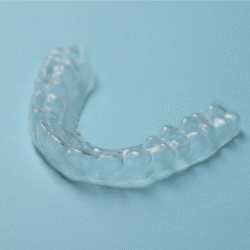It’s not another checkout staple in your skincare regimen; toner has become part of the broader idea of wellness, self-care, and maintaining the skin healthier in the long run. Along with cleansers, serums, moisturizers, and sunscreens, toner tends to spark the most questions: Do I actually need it, or is it just one more step the industry wants me to take?
If you have ever caught yourself thinking, “Do I really need a toner?”, then this guide lays it all out: what toners do, how they help the skin, who should use them, and whether they deserve a spot in your daily lineup.
What a Toner Really Is
A toner is a watery liquid applied after cleansing and before serums or moisturizers. Traditionally, toners were known for their astringent punch-getting rid of excess oil and tightening pores. Today’s toners are different: they hydrate, balance pH, calm irritation, refine texture, and prime the skin for better absorption of what comes next.
The modern formulas for toners are not harsh and drying like the old alcohol-based formulas. Instead, they are soothing, replenishing, and restorative, especially when paired with a gentle facewash that doesn’t strip the skin.
The Science Behind Toners
Your skin barrier rests on a slightly acidic pH, somewhere around 4.5-5.5. Cleansing, especially with strong detergents, can knock that out of balance, leaving skin more vulnerable to irritation, sensitivity, dryness, and breakouts. Toners help nudge things back toward the ideal state and modern formulas like magical toner work not only to balance but also to condition skin.
What toners can do:
- Rebalance pH after cleansing
- Hydrate at a deeper cellular level
- Wipe away residual dirt, sweat, makeup, and impurities
- Minimize the look of pores
- It soothes inflammation and redness
- Enhance absorption of serums and actives
Think of a good toner as prepping the soil before you plant—so everything you apply afterward takes root better.
Toners—Not Just “Extra,” They’re Helpful
Toners are not medically necessary, yet they make a huge difference in how your skin feels, behaves, and responds to skincare. Many notice better hydration, smoother texture, less dullness, and more even oil control within just a few weeks of starting.
Think of toner as a quick skin-refresh: light, refreshing, and truly satisfying. Hydrating formulations especially work well when formulated with ingredients like toner hyaluronic acid that bind moisture within the skin.
Always Important: Cleanse Before You Tone
A clean skin allows the toner to work best. Cleaning without stripping off moisture, removing dirt, oil, and sunscreen-sweat, sets the stage just right.
After cleansing, your skin is like a sponge, ready to soak in hydration and nutrients.
What a Toner Does for Your Skin
- Balances pH
Cleansers can push the skin toward alkalinity. Toners bring it back toward acidity, keeping the skin barrier strong against bacteria and environmental stressors. - Improves Hydration
Many toners contain humectants such as glycerin, aloe vera, panthenol, or hyaluronic acid, which attract moisture and help plump the skin. - Removes Residual Impurities
Even after washing, traces of pollution, oil, or makeup can remain. Toners help complete the cleaning without rubbing or scrubbing. - Tones Down Pores & Controls Shine
Ingredients like witch hazel or niacinamide help to cut excess oil and tighten pores, giving a clearer, more refined look. - Soothes Irritation & Redness
Soothing ingredients such as chamomile, rose water, cucumber extract, and allantoin ease sensitivity while helping inflammation subside. - Improves Absorption of Other Products
Toner is like the skin’s welcome mat—moisturizers and serums sink in faster and work more effectively on skin that’s been toned.
Hydrating vs Exfoliating Toners
There exist two major types:
Hydrating Toners: Full of humectants, such as glycerin and hyaluronic acid. Great for daily use, but ideal for dry, sensitive, dehydrated, or mature skin.
Exfoliating Toners: Include gentle acids in their formula, such as AHA, BHA, or PHA, that help remove dead skin and unblock pores. Use 2–3 times per week, depending on tolerance.
Toner selection should depend on the skin needs and not what’s in fashion.
When & How to Use Toner Properly
Step-by-step:
- Cleanse
- Apply toner
- Apply serum
- Moisturize
- Sunscreen
Best time to apply: right after cleansing, when the skin is slightly damp. You can do this in two ways:
- Cotton pad: sweeps away remaining impurities and refines texture
- With your hands: pat it on to give a hydration boost
Avoid aggressive rubbing; gentleness wins.
Different Skin Types, Different Benefits
Dry skin: Hydration-rich toners containing hyaluronic acid, rose water, aloe vera, and ceramides will help reduce tightness and flakiness making it perfect as a toner for dry skin.
Oily skin: Lightweight, non-sticky formulas with niacinamide, witch hazel, or green tea help control shine and balance sebum, often considered the best toner for oily skin.
Combination skin: A toner that provides hydration yet controls oil can balance the T-zone while caring for drier cheeks, making a toner for combination skin ideal.
The Power of Modern Toners
Today’s toners can brighten, lightly exfoliate, or deeply hydrate and restore radiance. A well-chosen toner has the ability to refresh dull, fatigued skin and leave it looking more radiant within weeks.
Signs You Might Want to Add a Toner
- Your skin feels tight or dry after cleansing
- You breakout or have clogged pores
- Makeup doesn’t go on well
- You notice dullness or rough texture
- Your skin oils up quickly after cleansing
- You want faster results from serums & actives
Toner isn’t a necessity, but your skin will thank you for incorporating it.
How to Choose the Right Toner
Skin concern — Look for:
Dryness/dehydration: hyaluronic acid, aloe vera, panthenol
Acne/oiliness: salicylic acid, niacinamide, witch hazel
Dull/uneven tone: Vitamin C, licorice, AHA toners
Sensitive skin: chamomile, rose, oat extract, allantoin
Aging/fine lines: Peptides, collagen boosters
Always patch-test any new toner for 24 hours to avoid irritation.
Are Toners Essential or Optional?
Short answer: Useful but not essential.
Sure, you can get by without one, but using one often improves hydration, texture, and how well other products work. If you’re chasing smoother skin, better hydration, and a more radiant look, then a toner is definitely worth considering.
Think of toner as the stretch before a workout: not necessary, per se, but beneficial.
FAQs
- Can I skip toner?
Yes, but it improves hydration, texture, and absorption - At what age should I start using toner?
Around 16–18, depending on skin needs - How often should I use a toner?
Apply after cleansing, 1–2 times daily - Cotton pad or hands—what’s better?
Hands for hydration, cotton to remove impurities - Can toner replace moisturizer?
No. Toner hydrates lightly—moisturizer locks it in - Can toner be used with serums?
Yes, it boosts serum absorption
Conclusion
Toners bridge cleansing and moisturizing—balancing, soothing, hydrating, and enhancing the performance of other products. Not necessary, but they can enhance results, help barrier strength, and brighten complexion over time.
Disclaimer
This is educational content. Skin types differ and results may vary. Always patch-test new products and consult a dermatologist if irritation occurs.




